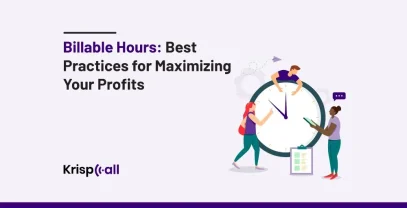Have you ever wished to work for yourself, get paid for doing what you love🥰, and create something out of nothing? Do you know that there are 400 million small businesses 😱 in the world and want to be one of them?
But when it comes to starting a business, it requires a lot of research, self-confidence, and a lot of courage, too. Don’t worry, though! 😀
With this article, we’ll explain how you can achieve success by learning how to turn your dream into a successful business, and we will provide you with steps to help you start your own small business easily.
🔑 KEY HIGHLIGHTS!
- Small business owners often start their businesses in order to achieve financial freedom, and independence, and to earn profit by serving society and the economy.
- In order to start a business, you should thoroughly research your target audience, competitors, and market demand.
- Starting a business costs around $3000 to $50000, depending on what you want to do.
- Starting a small business involves several crucial steps that lay the foundation for success, like determining the concept of your business, researching the market and competitors, having a business plan, securing funding, and marketing your business.
Why do you need to start a small business?

Every individual has their own purpose to start their own business. In the same way, many small business owners often start their careers for freedom and independence, being in charge, and financial benefits.
Notably, According to the SBA, 1.5 million jobs are created by small companies each year and account for 64% of new jobs in the US. And of the majority of small business owners, 86.3% pay themselves around six figures. So, this might also be one of the motivating factors for starting a small business.
Additionally, the chance of making money with an efficient small business is a good motivation because entrepreneurs have the possibility to earn a higher salary than they may in the case of a job in the usual way. Moreover, it gives people an opportunity to use what they are most innovative and creative about; it helps them to implement many of their ideas as well as solutions that have never existed before.
Finally, the factors that make people decide to start a small business are combinations of these stimulating reasons.
How much does it cost to start a small business?
Small business statistics found that 64% of businesses begin with $10,000. Micro businesses, however, can get started with as little as $3,000. Additionally, an estimated quarter of small businesses start without any funding!
The most interesting thing is that a small business owner usually spends $50,000 in their first full year of operation. Nevertheless, if you have a specific type of business in mind, you can either start one with a small investment or with a significant upfront investment.
By doing thorough research and creating a detailed business plan, entrepreneurs can help estimate their startup costs accurately and make sure they can secure financing when needed.
Moreover, the starting cost of a new online small business can vary depending on factors such as product costs, operating costs, marketing costs, online store costs, shipping costs, and staff costs.
15 steps to start your small business in 2024
When starting a small enterprise, there are a number of fundamental steps that are utilized to ensure that your new venture becomes successful and grows smoothly. Therefore, it is more important to conduct thorough research into the details of each step, which is an integral part of entrepreneurship.
The following 15 steps will not only help you navigate the complexity of business, but they will also give you clarity and confidence within your small business.
1. Determine your business concept
When it comes to business advice, it usually suggests doing what you’re passionate about. Still, it always fails to mention two aspects that are essential: that it must be profitable and that it must be something you’re good at.
For example, singing or writing music might be your passion, but will your plan succeed if you don’t sing or write well? Or, you might enjoy making soap and want to open a soap shop near your house, but there are already three nearby. However, it will be impossible for you to corner the market if you’re making the same product as your competitors.
Ask yourself the following questions if you’re not sure what your business will entail:
- Why do I want to start a business?
- Am I ready to commit the time and effort required?
- What problem does my business solve?
- Is there a demand for what I offer?
- What is my unique selling proposition (USP)?
🔥 You may be able to find a business idea by answering these questions. It may be possible for them to assist you in expanding an idea you already have. After you have an idea, evaluate it to see if you are good at it and if it is profitable.
2. Research your competitors and market

Generally speaking, business owners would rather write about their products than learn about their competitors. If your business idea is not unique, try to think of a different approach if there is a lot of competition for your product or service.
For example, a housekeeping service could clean pet-friendly homes or garages rather than general cleaning services. That means a business of the same niche might have slightly different products and services. So, the best thing to do is do some more research; for that, you can do the following things.
- Primary Research: The first phase of any competition study is primary research. It typically involves collecting data directly from potential customers instead of relying on previous results. It mostly involves learning more about consumers’ wants using questionnaires, surveys, and interviews.
- Secondary Research: In secondary research, you can gather information from existing sources, such as census data. There are several ways in which you may study, compile, and analyze current data, but they may not provide as much detail as primary data.
- Conduct a SWOT Analysis: A SWOT analysis is a review of strengths, weaknesses, opportunities, and threats. You can use a SWOT analysis to determine how well your product or idea would do in the marketplace and make decisions about its future.
3. Have a business plan
After researching, you’ll need to create a business plan. If you have a proper plan, the company will be able to achieve its goals, strategies, and objectives through this roadmap.
Every aspect of your business can be prepared with a strong business plan. It will also be useful when you are presenting to investors and lenders. In this plan, you should
- Describe your products or services,
- Your method of making money and
- Who do you need on your team.
Following that, make sure you provide extensive financial projections and a detailed description of what you plan to do with investors’ money. You should view the plan’s financials as a dynamic document that will vary as your projected income and expenses change.
As a general rule, make a business plan that defines your objectives, anticipates obstacles, and plans how to overcome them – and will probably undergo numerous revisions until it becomes a reality.
4. Apply for business insurance
In any type of business, whether you are a home-based entrepreneur or do not have any employees, you need insurance. You need the right kind of insurance depending on your business model and the risks you face.
A growing business may require additional coverage, and you may need more than one kind of policy. If you have employees, you are usually required to carry workers’ compensation insurance.
Also, you need to get insured with an agent. No wonder having the right insurance coverage for your business is important. So, you should find a skilled insurance agent who can help you to find affordable insurance policies. Hence, with the help of an independent agent, you can compare prices and coverage options from different companies by representing several different insurers.
5. Get the right business tools
There are many tools available for businesses that can make a user’s life easier and process more efficiently. So, having said that it is important to use the right tools as they will help save time and facilitate the automation of tasks. As a result, you can improve your decision-making.
With the aim to scale your business effectively, particularly if you are into field service operations, integrating powerful software tools can be a game changer. For example, Field Service Management Software can help businesses like yours optimize field service workflows, manage scheduling and dispatching, and improve overall efficiency significantly.
Additionally, here are some tools that you should consider:
- Accounting Software: Maintain financial records, file taxes, and track business income and expenses using accounting software. FreshBooks and QuickBooks are two examples you can use.
- Customer Relationship Management (CRM) Software: With the help of this program, you can automate follow-up and customer care duties, track sales and marketing data, and manage client relationships. For example, Monday.com and Zoho CRM.
- Project Management Software: This software allows you to develop a project plan, execute it, and track its progress. It can also allocate resources and manage employee tasks. Examples include Airtable and ClickUp.
- PoS System: A point of sale (PoS) is the system used to accept customer payments. Some accounting software and CRM software include POS functionality. Clover and Lightspeed are examples.
- Virtual Private Network (VPN): The tool allows you to connect to the internet securely and privately. For companies that handle sensitive data, this is essential. ExpressVPN and NordVPN are two examples.
6. Scale your business
Scaling your business means growing your customer base and revenue. Adding new products and services to your existing offering and expanding marketing efforts or services can all be ways to achieve this.

If marketing takes up a lot of your time, you can use AI productivity tools to make your tasks more efficient and productive and to help you with scalability. In addition, you may want to consider outsourcing the time-consuming task entirely.
In addition to automating certain business processes, you can generate leads and do email marketing. Thus, when scaling a business, make sure you remain profitable and pay attention to your finances. It’s either necessary to reduce your expenses or increase your revenue if you are not earning money to cover your costs.
7. Build a team
If you are running an online store, as your business expands, you will have to assign specific chores and gather a team of people to assist you in managing the business. This could involve recruiting new employees, independent contractors, or outsourced workers into their workforce.
However, resources for building a team include the following:
- Using Freelance Platforms: Freelancer, Fiverr, and Upwork are good places to find talented freelancers for short-term or one-time projects. Additionally, you may hire someone to handle certain tasks, such as bookkeeping, social media marketing, or customer service.
- Using Hiring Platforms: You can conduct video interviews and post job descriptions on platforms such as Indeed and Glassdoor in order to find the right candidates.
- Going Through Job Boards: Free job posting sites allow you to post jobs, whereas applications such as Craigslist and Indeed allow you to market jobs on them.
- Using Social Media: LinkedIn and Facebook can also be used to find potential employees.
Therefore, it is possible to collaborate with other organizations in your industry as well. For example, partnering with florists, photographers, catering companies, and venues is an option for wedding planners. You can increase your sales by providing one-stop wedding shopping for your customers.
8. Choose a business structure
When you start a business, everything from taxes to liability depends on the legal structure you choose. Therefore, it is advisable to seek the services of a tax professional who can assist you in choosing the right business structure. Also, you can always move some of the responsibilities or add new ones as your business develops.
Here are some business structures you can choose that benefit you the most:
- Sole Proprietorship: Consider a sole proprietorship if you want to start a solo business. According to law and tax regulations, the company and the owner are treated as the same. It is the business owner’s responsibility to take care of the business. If the business fails, therefore, all business debts will be owed by the owner personally and financially.
- Corporation: Similarly to LLCs, corporations limit your liability for business debts. The tax treatment of corporations varies depending on whether they are C corporations (C-corps) or S corporations (S-corps). If a small corporation meets certain IRS requirements, it can qualify for S-corporation status.
- LLC: In an LLC, you are not personally liable for business debts. Registered agents are required for LLCs that are owned by individuals or companies. Those who own the company are called members.
- Limited Liability Partnership (LLP): Unlike an LLC, an LLP is typically used by lawyers and accountants licensed to conduct business. An agreement between the partners is needed for these arrangements.
9. Open a business bank account
Keeping business and personal finances separate is a good idea. What do you need to know about checking accounts for businesses? Why is it essential to have separate accounts? When opening a business bank account, you must provide your company name and tax identification number (EIN).

It can be used to pay suppliers and issue invoices to customers for business transactions. Moreover, most banks require a separate business bank account to grant a credit line or company financing.
- Hire a Bookkeeper or Get Accounting Software: This is needed to be done to track and control stock levels. This allows businesses to monitor their inventory, generate relevant reports, and maintain accurate financial records.
- Determine Your Break-Even Point: This is the point when your company starts to turn a profit. You need to know how much cost you need to start your business. As a result, you can determine whether you can have a break-even or not.
10. Establish business accounting
For any business to thrive, it is essential to maintain and manage its accounting properly. So, having a detailed understanding of the company’s financial health and performance is a fundamental step for business owners.
In spite of this, keeping track of all of the tax compliances and financial records needed for documentation can be difficult. So, your finances should be kept organized and up-to-date by using one of the many affordable bookkeeping platforms.
11. Market your business
Starting a business is not easy; however, it is still possible. Since competition is very high, entrepreneurs should always have proper marketing strategies and market their firm’s values.
Similarly, to achieve this, you should have a well-thought-out plan and preparation for your business. This includes creating a marketing strategy that details your business’s objectives, expenditure, and target audience.
Additionally, if you want to expand your business’s growth rate, consider contacting a digital agency. Therefore, to target your audience, you can start with social media campaigns, email marketing, and advertising.
12. Hire employees (if necessary)
Having growth is always good for your business but it is vital to monitor it and whether the business is able to sustain it. However, it’s worth remembering that you alone cannot handle all the aspects of your business activities at the same time.
Nevertheless, it is also important to mention that hiring employees may become a liability when the return on investment of the labor is less than the risk it incurs. It is normal for any business organization to face such challenges. Depending on your strategic focus, some decisions will be critical to your business’s growth.
Furthermore, it illustrates the importance of having a clear strategy and adapting it to changing market conditions.
13. Set up your business location
Setting up your business location is one of the essential things that any company can relate to. It is important because your customers are able to get access to your services. So choose a location that is highly visible and has budget-friendly rent.

Also, you can consider the following factors:
- Space Requirements: Make sure that your selected location can accommodate your business needs or not. This includes storage, equipment, and future expansion.
- Safety and Security: Primarily, analyze the safety of the neighborhood to protect your assets. This will ensure a safe environment for employees and customers.
- Workforce Availability: Consider the local labor market and the availability of qualified employees.
14. Fund your business
Raising funds for your business is one of the complex processes. It includes persuading investors, having to manage all documents, and so on. However, there are also some methods that need longer effort and time than the others.
Here are some ways to get money either internally or externally.
Internal Funding Includes:
- Credit cards
- Personal savings
- Family and friends
If the business fails, the money you invested or the credit card debt you used to finance it will go down the drain. When you allow a friend or family member to invest, you also run the risk of hurt feelings and strained relationships. External funding may be a good option when a business owner wants to minimize their risks.
External Funding Includes:
- Venture capital
- Crowdfunding
- Small business loans
- Angel investors
- Small business grants
Furthermore, many small businesses rely on more than one source of funding. So to determine:
- How much money is required to borrow,
- How long it will take for the company to redeem the loan and
- How risk-prone your business is.
No Planning for profit is important, no matter what source you use. You’d rather make six figures and keep a large portion of what you earn than make seven figures and keep only a small portion of it.
15. Market your business
After launching their products, many business owners don’t have a marketing budget because they have spent so much money on creating their products. The product has been in the works for so long that marketing has been largely ignored.
- Create a Website: Whether your business is brick-and-mortar or online, you must have a website. It doesn’t take long to create one, either. Make sure your website includes a page that lists your location and hours for offline businesses. It is also a good idea to add an “About Us” section, product pages, FAQs, and contact info.
- Optimize Your Site for SEO: After developing a website or e-commerce store, you should optimize it for Search Engine Optimization (SEO). This way, a search engine can direct potential customers to your website when they conduct a keyword search related to your products. Using all the right keywords initially won’t guarantee tons of traffic from search engines since SEO is a long-term strategy.
- Develop a Social Media Strategy: It’s important to be on social media, too, because it’s where your potential customers are all the time. Keep your audience engaged by posting content they’ll like. Get people back to your website, where they can learn more about what you do and buy your stuff.
Conclusion
Establishing a small business seems exciting at first, but it is a more challenging journey. It requires proper planning, dedication, and resilience. However, by thoroughly following these guidelines, you can build a strong base for your business.
It takes many critical steps for a small business to get off the ground. The first step is to make a good business plan, another is to do thorough research on your market and niche, then you need to get the right tools, market your business, and so on.
Additionally, to start a business legally, you should choose the right structure, register it with the authorities, and get funding. But dont forget to choose a catchy and memorable name and logo for your brand, so it will stand out in the industry.





